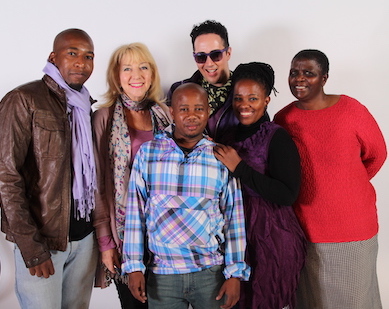 A theatre that has brought more than 2,500 new shows to life in its 27 years of existence has launched a fundraising campaign to prevent its curtains from closing permanently.
A theatre that has brought more than 2,500 new shows to life in its 27 years of existence has launched a fundraising campaign to prevent its curtains from closing permanently.
Johannesburg’s Theatre on the Square in Nelson Mandela Square has created work for thousands of actors, musicians, designers and behind-the-scenes crew. While it’s a safer bet financially to bring already successful shows to the stage, the Theatre on the Square has provided a platform for new playwrights and performers to present untested works by funding their production.
The venue has survived through corporate sponsorships and by draining the bank balance of its founder, owner and artistic director Daphne Kuhn. During a year of Covid closure the staff have all been retained and paid, but it can only reopen if a fundraising campaign generates enough cash to cover the bills and pay artists who are desperate to perform again.
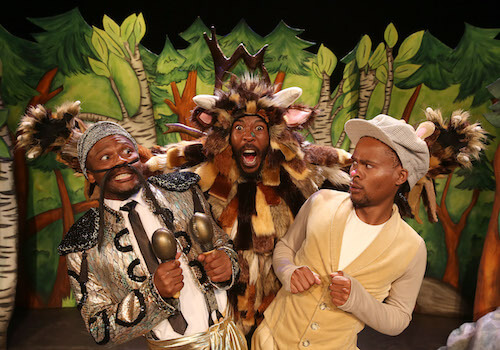 Kuhn has always been hesitant to publicise the eternal search for funding in case potential sponsors fear the theatre will fail. But this time she knows the Covid lockdown will trigger its closure for ever unless the sponsors come. “I have been reluctant to do this because it’s a very emotional thing. But every day I get requests from artists, musicians, playwrights and directors asking when we’re reopening. The industry has been devastated and it hasn’t had the support the government’s stimulus package promised,” she said.
Kuhn has always been hesitant to publicise the eternal search for funding in case potential sponsors fear the theatre will fail. But this time she knows the Covid lockdown will trigger its closure for ever unless the sponsors come. “I have been reluctant to do this because it’s a very emotional thing. But every day I get requests from artists, musicians, playwrights and directors asking when we’re reopening. The industry has been devastated and it hasn’t had the support the government’s stimulus package promised,” she said.
“This theatre is part of the cultural life of Johannesburg and it’s created productions that have toured the world and launched the careers of many well-known artists. It’s probably been the most prolific theatre producer of plays in the country and it would be a huge loss to the city and the industry.”
Kuhn has sought funding from several companies, but budgets are tight and with so many organisations desperate for support, she fears the plight of the theatre will be ignored.
The Covid lockdown has already caused Cape Town’s high-profile Fugard Theatre to close permanently after a year of blackout. That had also relied on private sector support, chiefly the largess of philanthropist Eric Abraham.
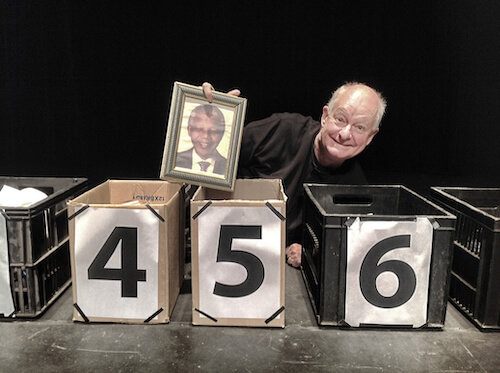 “It’s a tragedy to see theatres closing, especially at this time when healing and upliftment is needed more than ever,” Kuhn says. “It’s the saddest thing to see there will be fewer theatres, musicals, plays and concerts. The arts are on the bottom of the priority list for financial support, but they’re an essential service that should be supported by corporates to keep South African culture alive. Theatre entertains and educates and tells our stories with all the social, political and emotional ideas that form our diverse cultural tapestry.”
“It’s a tragedy to see theatres closing, especially at this time when healing and upliftment is needed more than ever,” Kuhn says. “It’s the saddest thing to see there will be fewer theatres, musicals, plays and concerts. The arts are on the bottom of the priority list for financial support, but they’re an essential service that should be supported by corporates to keep South African culture alive. Theatre entertains and educates and tells our stories with all the social, political and emotional ideas that form our diverse cultural tapestry.”
With a seven-year sponsorship from insurance company Auto & General ending last year, Kuhn needs to raise at least R2 million a year through the new fundraising scheme. The running costs are huge, with the rent and salaries requiring R200,000 a month, and utility bills adding R50,000 a month.
The theatre was purpose-built in 1997 so Kuhn could relocate to Sandton from her previous premises in Rosebank. The landlord, Liberty Two Degrees, has agreed to waive the rent for the rest of the year if she renews the lease. That cuts the running costs, but still leaves utility bills and wages even before anything is staged. Producing a new play costs at least R500,000, even with a small cast, Kuhn says. That covers buying the rights, paying the director, artists, designers and technical crew during rehearsals and performances, and the cost of the set, costumes and marketing. Despite that huge effort and investment, a show may only run for two or three weeks, making it hard to recoup the costs.
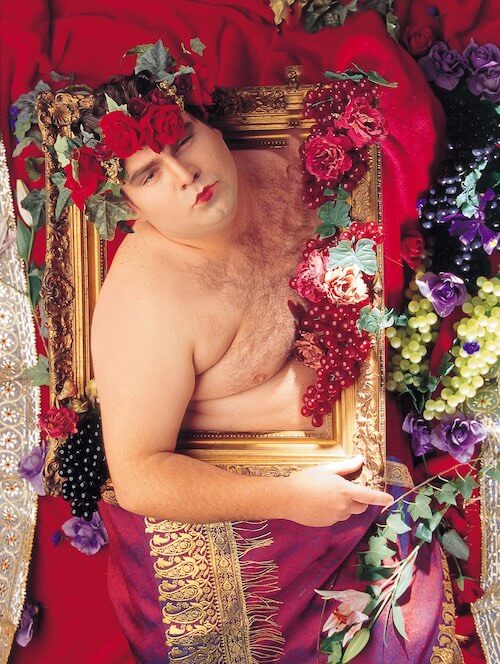 Few theatres, if any, can survive on ticket sales alone, and with Covid-19 compliance requiring auditoriums to be only half full, ticket income will be slashed.
Few theatres, if any, can survive on ticket sales alone, and with Covid-19 compliance requiring auditoriums to be only half full, ticket income will be slashed.
Critics who believe the Theatre on the Square is for an older, white, elite Sandton audience clearly haven’t seen the line-ups over the past few years, Kuhn says. “Our plays, musical events and comedy shows are representative of all of South Africa. We produce new plays that are relevant or uplifting, exciting and provocative. We have promoted the works of many South African writers who have been acknowledged by several awards.”
Often the plays hold up a mirror to society and tackle the social issues around us to challenge our thinking. The venue also stages lunchtime classical and jazz concerts, children’s theatre and school drama festivals, providing a space for new talent.
The postponed 2020 line up that she hopes to revive includes runs by local comedians Nik Rabinowitz, Loyiso Madinga and Ntosh Madlingozi; a new play by South African playwright Paul Slabolepszy; and a collection of dark comedy sketches by satirist Mike van Graan.
As an independent commercial producer, Kuhn has no obligation to stage untested South African works, but she does so bravely, says Ismail Mahomed, the Director of the Centre for Creative Arts at KZN University. “Kuhn takes calculated risks to produce South African theatre which draws open a curtain to the complex world of South African society, and she always succeeds at producing theatre which is wonderfully entertaining,” he says.
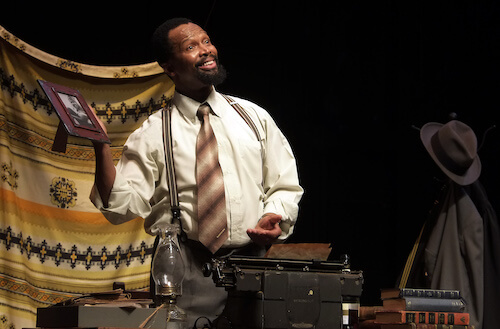 The theatre could reopen in July if money comes in from 10 new categories of sponsorship. Individual membership for R500 a year promises discounted tickets and invitations to special events. Sponsoring one of the 200 seats costs R1,200 a year, with your name inscribed on a seat and discounted tickets. Other categories include life membership, corporate sponsorship for R10,000 a year, and supporting the jazz or classical concerts, children’s theatre and playwriting projects.
The theatre could reopen in July if money comes in from 10 new categories of sponsorship. Individual membership for R500 a year promises discounted tickets and invitations to special events. Sponsoring one of the 200 seats costs R1,200 a year, with your name inscribed on a seat and discounted tickets. Other categories include life membership, corporate sponsorship for R10,000 a year, and supporting the jazz or classical concerts, children’s theatre and playwriting projects.
The silver bullet would be securing a new sponsor for the full naming rights at R2-million a year, with the company name displayed above the theatre and on advertising materials, free tickets for staff and clients, and use of the venue for corporate functions.
If theatres fail to reopen if will exacerbate the devastation to the arts caused by Covid-19 lockdowns. Artists have been left starving by the lack of performing opportunities, coupled with a farce in handling the sector’s R300-million government support package. Minister of Arts and Culture Nathi Mthethwa admitted the money was mismanaged after the National Arts Council reneged on funds pledged to about 600 approved applicants, and but it still hasn’t been forthcoming.
First published in The Daily Maverick.
To donate, click here: